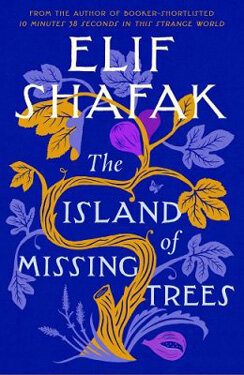This is the third novel I've read by Elif Shafak and I love the sheer heart and humanity of her fiction. Her work does what the best writing should which is to give a voice to the voiceless and start a conversation about divisive social issues which affect us all while telling an engaging story about characters I grew to really care about. “The Island of Missing Trees” is part love story and part history of recent deadly conflicts in Cyprus. Greek Cypriot Kostas and Turkish Cypriot Defne are teenagers who form a strong romantic relationship in a taverna. When war breaks out their world is torn apart. Many years later in England their teenage daughter Ada struggles to come to terms with her parents' past and she's also dealing with the fact that a video of her experiencing an emotional outburst/breakdown has gone viral. This may sound like an obvious device for exploring the personal ramification of national discord, but like Ada who claims she understand the division which ravaged her parents' lives there is much more to the story and intricacies which require deeper consideration. Gradually we get the full tale of Kostas and Defne's past which is especially heartrending because it also involves another tragic love story about the gay proprietors of the taverna they meet in. It's a vibrant and sweeping saga that I got fully wrapped up in with all its moments of humour and sorrow.
One of the most surprising and delightful aspects of this novel is that it's partly narrated from the point of view of a fig tree. And she has lots of opinions! It's very playful the way the tree comes to comment upon the story of these characters' lives as a silent witness while also giving a wholly new view on the situation. Since her conception of time and the interrelationship between all living creatures and the natural world is very different from humans she is able to stand somewhat outside the emotional and political drama of these characters (although she has her own love interest). At the same time she's been physically at this story's centre since she grew in the middle of the taverna and a cutting from her branches was taken to England to flourish in a new form. In this way Shafak meaningfully weaves in commentary about environmental issues which have affected Cyprus over the years on top of the human casualties sustained because of the war. Another point of view given by the narrative I really appreciated was that of Ada's aunt Meryem who comes to stay with the family in England and becomes involved in her niece's life (despite the teen's resistance). She maintains her superstitious belief despite Ada's judgemental attitude and the two come to establish a touching bond. It enforces the fact that Shafak's stories are at heart a celebration of family, love and individuality in all its beautifully varied forms.












